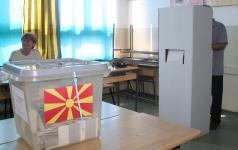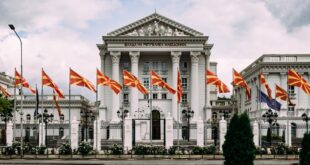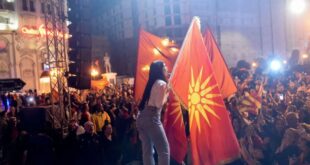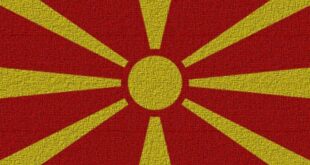 The campaign for the joint presidential and local elections in Macedonia ends Friday at midnight. After 24 hours of pre-election silence about 1.8 million people will vote on Sunday, after several weeks of campaigning during which the main candidates have largely failed to inspire voters.
The campaign for the joint presidential and local elections in Macedonia ends Friday at midnight. After 24 hours of pre-election silence about 1.8 million people will vote on Sunday, after several weeks of campaigning during which the main candidates have largely failed to inspire voters.
The conduct of the elections will be watched closely by the EU, NATO and the US and are seen as crucial for the democratic credibility of the country, after last year’s parliamentary elections were marred with violence.
Outgoing president Branko Crvenkovski has urged voters, party members and activists to keep a cool head and do everything in their power to make sure that the polls pass without incidents. This election “is much more than choosing the leader for the next five years”, he said.
The US ambassador to Macedonia Phillip Reeker echoed these statements in an article he wrote for Friday’s edition of the ”Dnevnik” newspaper. ”Will Macedonia be an example of a successful multi-ethnic democracy in the 21st century? Will it give further proof that joining the Euro Atlantic institutions should happen as fast as possible?” he asked in his column.
Macedonia’s police has prepared a special plan to secure safety and ensure a calm atmosphere at the polls, saying it will heighten security at places were incidents took place in the past.
For their part, the seven presidential candidates have focused their campaigns on the country’s strategic goals, EU and NATO membership, and on the need to solve the burning so-called name row with Greece that jeopardizes these goals.
The economy and ethnic relations between the Macedonian majority and the Albanian minority were also high on the agenda.
But the large number of people who still say that they don’t know who they will vote for indicates that many feel uninspired. “The campaign offered nothing new. It was even boring at moments,” said Skopje University professor Vasko Naumovski for the ”Vreme” daily.
In a largely colourless campaign one of the few novel phenomena has been the relative popularity of the ethnic Albanian candidate Imer Selmani, who opinion polls show has a chance of becoming the first ethnic Albanian to get into the second round of presidential elections, scheduled for April 5. Unlike his competitors who have campaigned exclusively for the vote in their own ethnic constituency, Selmani has campaigned in Macedonian majority areas with many Macedonian voters indicating they may vote for him.
Still, opinion polls show the ruling VMRO DPMNE’s candidate Georgi Ivanov has a firm lead. Along with Selmani, Ljubomir Frckoski fielded by the main opposition, the Social Democrats, is also a runner up.
Political analyst Vladimir Bozinovski argues that it is better to have boring election than a tense one, marred with violence. “The local and presidential elections can never be interesting as the parliamentary polls,” he says. According to the constitution the real power in Macedonia lies with the prime minister while the president is seen more as a ceremonial figure with limited authority over foreign policy and the military.
If no presidential candidate wins more than half of the votes in the first round, a second round between the two front runners will be staged on April 5. The race for the mayors of the 84 municipalities has the same rule.
 Eurasia Press & News
Eurasia Press & News



